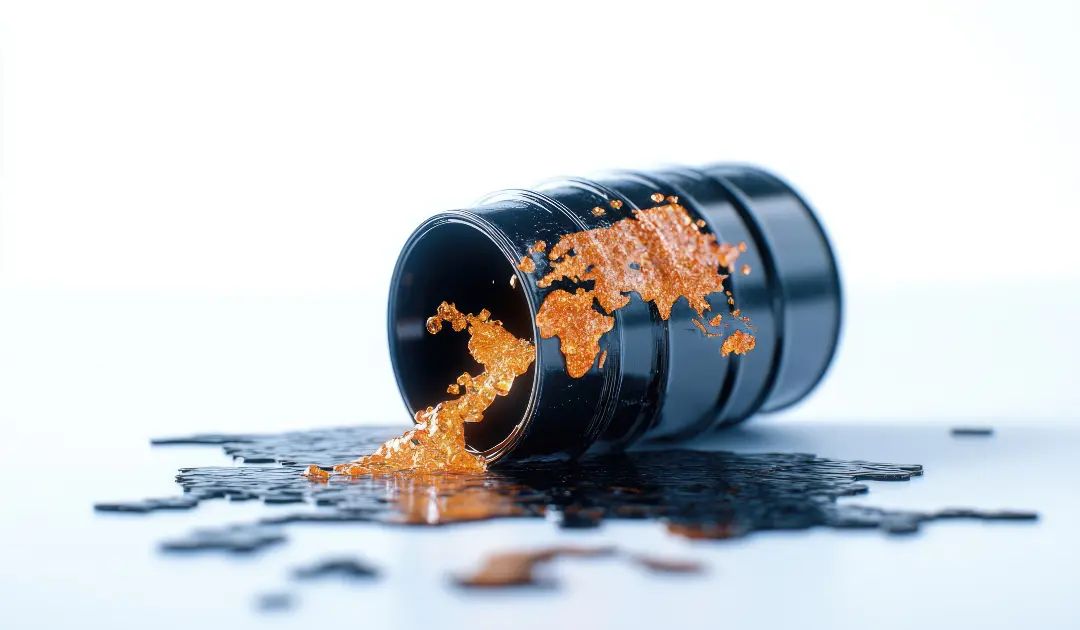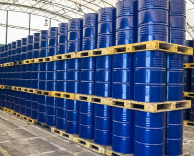Stop Doing This With Your Industrial Oil
Introduction
Industrial oil is the spirit of your machinery, and how you handle it can either make or break your equipment’s reliability. We have seen it time and again in the lubrication industry that innocent folks unintentionally shorten their machines’ lifespans by mistreating their oil. Let’s learn about some common mistakes you need to stop making with your industrial oil. Avoid these errors, and you’ll keep your operations running smoother, longer, and with far fewer headaches.

1. Stop Ignoring Oil Contamination Control
One of the worst things you can do is neglect oil contamination control. Dirt, dust, metal shavings, and water have a sneaky way of infiltrating your oil. What was the result? Clogged filters, stuck valves, and worn-out pumps are basically a maintenance disaster. In fact, studies have shown that around 70% of premature machine failures are due to oil contamination. Let that sink in: most failures could be avoided just by keeping the oil clean! So, how do you control contamination? Start with the basics:
- Maintain clean storage containers and fill ports.
- Use proper breathers on tanks.
- Ensure seals aren't leaking.
- Use industrial oil filtration and purification systems.
- Prioritise contamination control to prevent abrasive particles and moisture.
It’s a very simple mantra: clean oil = happy machinery. Clean, well-maintained hydraulic components (like the chrome piston above) stay efficient when oil is kept free of harmful contaminants. Successful oil contamination control blocks abrasive wear and extends equipment life.
2. Stop Underestimating Lubricant Degradation
Fact: Oils age and break down over time. Yet many people run their equipment as if oil lasts forever. Ignoring lubricant degradation is a costly mistake. Heat, oxygen, and chemical reactions slowly turn your once-fresh oil into a sludge of depleted additives, acids, and varnish. Did you see a sticky brown coating inside a used oil tank or on machine parts? That’s varnish from oxidised oil, and it’s bad news. Oxidation can spike oil viscosity, form sludge and varnish, deplete additives, and even plug filters. Running your machinery on degraded oil is like trying to fry food in rancid oil, and it just doesn’t perform and will likely cause damage. The key is to monitor oil health and change or rejuvenate it before it crosses the point of no return. Use oil analysis to track indicators of degradation like acid number, oxidation levels, or viscosity change. And take steps to slow degradation, like controlling operating temperatures, limiting contamination and using high-quality oils with strong antioxidant additives. The bottom line is don't let your oil silently go bad while you're not looking. Staying on top of lubricant condition will save you from unexpected interruptions and expensive component replacements.
3. Stop Skipping Oil Condition Monitoring
Many maintenance teams adopt an out of sight, out of mind approach to oil, and if the machine runs, the oil must be fine, right? Wrong! Oil condition monitoring is the proactive practice of regularly testing and analysing your oil, and it’s a game-changer for reliability. By sampling the oil and checking its cleanliness, chemistry, and wear particles, you get a peek into your machine’s health. Think of oil analysis as an early warning system, as it flags issues before a major failure occurs. In fact, oil condition monitoring is a proactive approach to maintenance that involves regular oil testing to track its state, helping you identify wear trends and set ideal oil change intervals based on actual conditions. Instead of changing oil on a fixed schedule, you change it when the oil’s condition says it’s time, saving money and avoiding risk. Monitoring can be as simple as sending samples to a lab every few months or as high-tech as installing real-time sensors that alert you if something’s off. For instance, a rise in particle count might indicate an impending failure, or a surge in moisture could warn of a seal leak. By keeping an eye on your oil, you’re really keeping an eye on your equipment’s well-being. Trust me, this habit pays off by preventing catastrophic breakdowns and utilising your maintenance intervals.
4. Stop Waiting for Breakdowns
If your maintenance philosophy is run to failure, it’s time to rethink that. With today’s technology, predictive maintenance is easier and more effective than ever. Instead of fixing things only after they break and dealing with costly downtime, predictive maintenance means using data that often includes oil analysis data to anticipate problems and tackle them in advance. It’s like fixing a small leak before the entire dam bursts. By analysing trends in oil condition and other machine parameters, you can schedule repairs or oil changes at the right time. The payoff is huge: companies that adopt predictive maintenance have dropped failures by up to 70% and pared maintenance costs by 25%. Imagine the savings and peace of mind when you’re not constantly in firefighting mode. For example, if your oil monitoring shows rising metal content, you can inspect that component before it fails completely. Or if vibration and oil debris data predict a bearing failure, you replace the bearing during a planned outage instead of a sudden crash. Embracing predictive strategies doesn’t require a crystal ball but just a commitment to regular monitoring, data analysis, and acting on the insights. Over time, you’ll transition from reactive last-minute maintenance to a smoother approach where the machine tells you what it needs ahead of time. Your boss, your team, and your machine will thank you.
5. Stop Neglecting Industrial Oil Filtration
Think the tiny filter on your machine is enough to keep the oil clean forever? It's not. Industrial oil filtration is necessary to remove the contaminants that unavoidably get into your oil. Without proper filtration, abrasive particles circulate through your system like sandpaper, and water invites rust and lubricant malfunctions. Proper oil filtration isn’t just about a single filter element, but it often involves off-line filtration units, centrifugal separators, or other technologies to continuously clean the oil. Remember, oil is cheaper than machine parts, and keeping it clean is a no-brainer. By filtering out the bad stuff, you protect your machinery, improve efficiency, and even prolong the oil’s usable life. In fact, Minimac Systems specialises in modern filtration solutions, and we emphasise that dedicated oil purification systems should be incorporated in every fluid application to keep lubricants in peak condition. So don’t just rely on chance. Invest in proper filtration, whether it’s a portable filter cart you hook up to your reservoir or a high-efficiency filter upgrade on your lube system. Your oil will last longer, your machines will run better, and you’ll spend a lot less time dealing with clogged valves or worn bearings.
6. Stop Cutting Corners on Oil Sampling Procedures
So you’ve decided to do oil analysis, great! But if you take oil samples casually, you might be cheating yourself with bad data. Poor oil sampling procedures are another thing to quit ASAP. A sloppy sample, wrong location, dirty bottle, or taking it at the wrong time can be misleading or outright useless. Consistency and cleanliness are the name of the game here. Always use clean sample bottles and tools, take the sample from a representative point, like before filters or in a turbulent flow zone, and follow a standard procedure every time. Why is this so important? Because without a representative sample, oil analysis cannot effectively monitor conditions, predict failures, or extend asset life. Avoid common mistakes like skimming oil from the drain pan (it’s full of settled gunk that doesn’t represent operating conditions) or sampling right after adding new oil, which masks the true condition. Instead, sample during normal operation, from a midway point in the system or a dedicated sampling port. Flush the line a bit before filling your bottle to avoid any residue messing up the sample. By standardising your oil sampling procedures, you’ll get reliable data that you can act on with confidence. And reliable data is the foundation of everything from condition monitoring to predictive maintenance.
For more information on how Minimac can assist with your industrial oil needs, click here.
Take Charge of Your Oil’s Future
At the end of the day, taking care of your industrial oil is taking care of your business. Stop doing the six things we talked about above, and you’ll see the differences, such as fewer breakdowns, longer oil and component life, and a lot less stress when that production deadline looms. It’s all about treating your oil like a critical asset. Keep it clean, keep it healthy, and keep an eye on it. And remember, you’re not alone in this. If you ever feel out of your depth, there are experts out there to help. For instance, Minimac Systems offers a range of services and products, from contamination control solutions and high-efficiency filtration units to on-site oil condition monitoring tools and training to back you up in managing your lubricants. A little preventive care and smart practice with your industrial oil really goes a long way. So give your oil the attention it deserves, and enjoy the payoff of smooth, reliable operations. Consider it a friendly piece of advice that your future self and your machines will be grateful for!
Learn more about our services and industry insights by visiting our official LinkedIn page: Minimac Systems Minimac Systems





